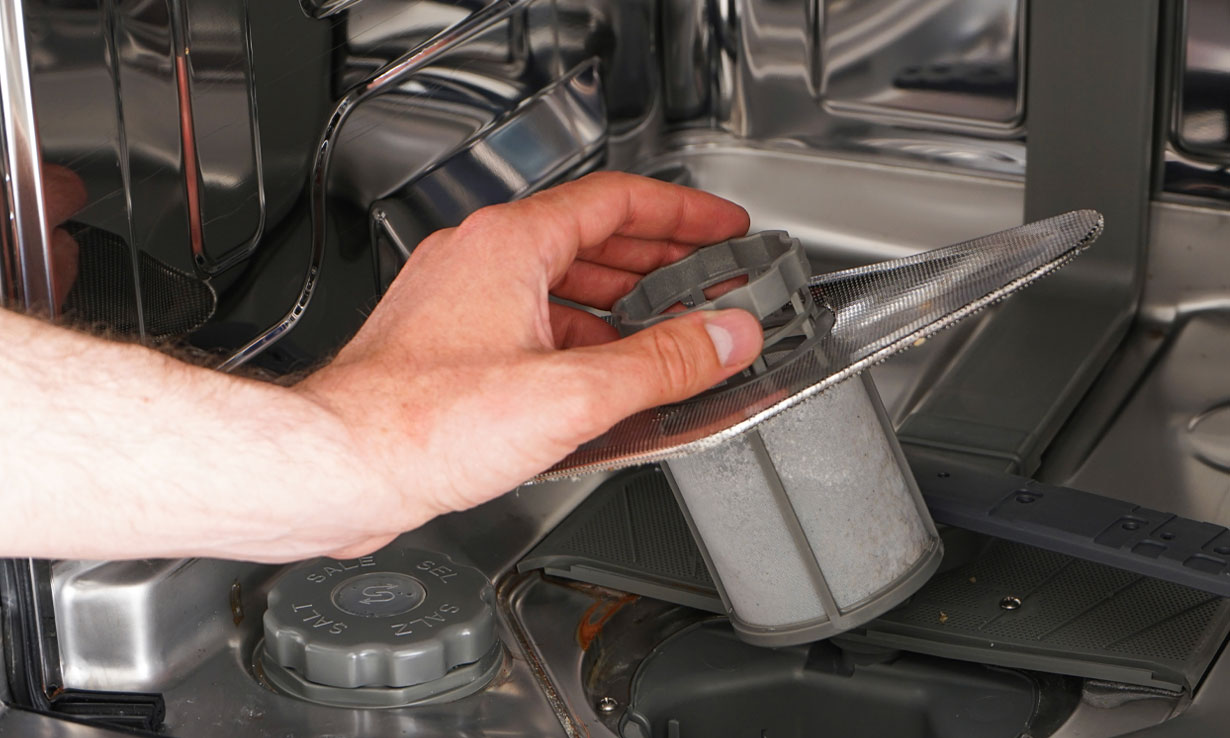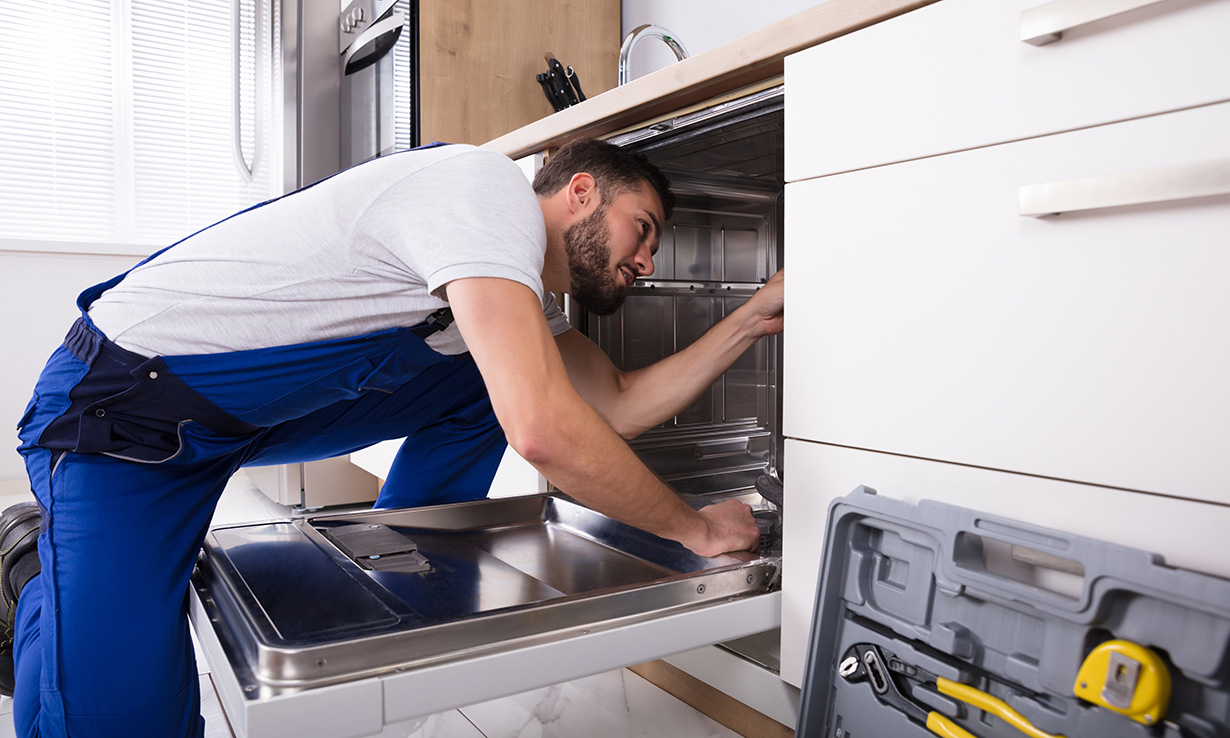How do you actually feel in relation to Why is My Dishwasher Not Cleaning Properly??

Having your dishwasher break down or malfunction can be a big deal as well as create some pain at home. Dishwashers are devices that we utilize to clean dishes as well as flatwares immediately to conserve us the stress and anxiety of manually doing it.
Like every other machine that relieves human effort, dishwashing machines can break down as well as establish some mistake at some point in time. There are numerous faults your dishwashing machine might establish, as well as while a few of them can be fixed by changing some components or repairing them, various other a lot more extreme issues will certainly require that you get a new dishwasher.
This article will identify a few typical mistakes your dishwashing machine could create to impede its overall efficiency and just how these faults can be solved.
Usual Mistakes
Common dish washer mistakes could vary from minor to major ones. Relying on the extent, you will certainly either require the solutions of professional plumbing professionals to take care of or replace it.
Several of the most typical faults include:
Dripping Dishwashing machine
This is probably one of the most daily dishwasher trouble, and also fortunately is that it is easy to recognize. Leaks occur as a result of a number of factors, as well as the leaks can ruin your kitchen area. Usual reasons for dishwasher leakages include;
If your recipes and also cutleries appear of the dish washer and still look filthy or dirty, your spray arms may be an issue. In many cases, the spray arms can get obstructed, and it will need a fast tidy or a replacement to work successfully once more.
Inability to Drain
Occasionally you might notice a big quantity of water left in your bathtub after a wash. That is most likely a water drainage issue. You can either examine the drain hose pipe for problems or clogs. When in doubt, get in touch with a professional to have it inspected and also fixed.
This is one more typical dish washer issue, and also it is mostly caused by food debris or grease remaining in the maker. In this instance, seek these fragments, take them out and also do the dishes without any dishes inside the device. Laundry the filter thoroughly. That will assist do away with the poor scent. Make certain that you get rid of every food particle from your dishes before transferring it to the machine in the future.
Conclusion
A few of these typical dish washer mistakes can be fixed easily at home, but in some cases, the faults could be enormous and may require the attention of professionals. If you live in Rochester, Syracuse, and various other parts of America, allowed the experts appropriately identify what could be wrong with your dishwashing machine and proffer a solution.
We also install dish washers if you simply acquired a brand-new one or mean to replace your very own. With our years of experience in the sector, we make sure to provide you the best possible services.
7 COMMON PROBLEMS THAT LEAD TO DISHWASHER REPAIR OR REPLACEMENT
Your Dishwasher is Leaking
As with a leaking clothes washer, there are many potential reasons why your dishwasher is regularly leaking. Among other problems, your leaking dishwasher may have:
A damaged drainage hose A faulty pump and/or pump seal A bad door seal (this is likely as dishwashers age since the seals become brittle) Overloading can also be the cause of occasional leaking, so it’s wise to follow your dishwasher manufacturer’s advice on how to load plates, utensils, and larger items like pots and pans. You can also look for information on how to properly load your dishwasher online. This is a subject that many people have opinions about, and there are tons of dishwasher loading tutorials available, believe it or not!
You Have Dirty Dishes Even After the Dishwasher Has Run
This is another problem that can be caused by overloading your dishwasher, though you may also be using the wrong detergent for your particular dishwasher. This is easy enough to do, as there are lots of different dishwasher detergent formulations for sale—powders, gels, and dissolving tablets.
Check your dishwasher’s manual for more information or visit the manufacturer’s website for help choosing the detergent type that works best with your particular appliance. All the best dishwasher brands should offer support and troubleshooting advice on their websites.
Unfortunately, sometimes more serious problems—like damage to circuitry or electronic control components—can be the cause of your dishes not getting clean. While relatively uncommon, power surges can damage your dishwasher’s electronics, which can prevent cycles from fully running. If your dishwasher has an electronic display of any kind, it may show error codes for incomplete cycles. You’ll need to contact a reliable dishwasher repair resource for help with this kind of problem.
Your Dishwasher is Not Fully Draining
This problem is often due to clogs in the drainage system of your dishwasher. Improper drainage can create huge messes, like damaging leaks and bacterial growth inside and outside of your dishwasher. Some dishwashers have self-serviceable filter components that should be cleaned out regularly to prevent clogging.
However, your dishwasher could also have more significant problems with its drain pump or other components. As we discussed above, damaged circuitry can prevent cycles from running or advancing properly, and that could be the culprit in this case, as well. It’s best to call an appliance expert for help with dishwasher repair due to drainage failure.
Your Dishwasher Won’t Turn On
A dishwasher that won’t turn on doesn’t necessarily equal a “dead” dishwasher. You could have a simple blown fuse or tripped breaker affecting your dishwasher’s power supply. Check to be sure your dishwasher is receiving the power it needs to run.
Another common issue that will prevent your dishwasher from starting up is a faulty door latch. If your dishwasher can’t close properly—or the electronic control system “thinks” it’s not closing properly—the appliance won’t start.
Your Dishwasher Has Water Fill Problems
Another issue that is sometimes caused by damaged circuitry and cycles that aren’t running or advancing correctly, water fill problems can be tricky to troubleshoot. If your dishwasher is not filling at all—or won’t stop filling as it operates—it could be due to a faulty float or float switch, or a water inlet valve problem, too. And these issues are best addressed by dishwasher repair professionals.
https://www.kaappliance.com/blog/7-common-problems-that-lead-to-dishwasher-repair-or-replacement

Do you appreciate reading up on Common Dishwasher Problems? Put a comment down below. We will be interested to find out your opinions about this write-up. Hoping that you come back again before long. Do you know about anybody else who is serious about the subject? Why not promote it. I am grateful for your time. Don't forget to come visit our site back soon.
Free Quote